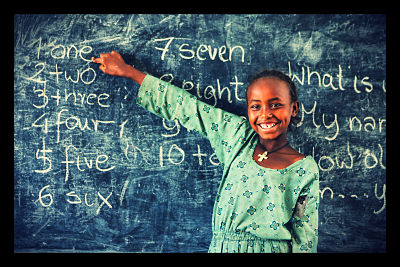Educating Women: An Efficient Angle Towards Solving Global Poverty

It has been said, to fight poverty start with educating women. Sounds simplistic, but by no means can it be argued as a holistic or the only solution to global poverty. What has been proven without a shadow of a doubt, however, is that from the shadows of our patriarchic cultural past, women still do not enjoy full equality.
In the U.S. This manifests in lower pay and lower rates of CEOs, high executives or public officials, a travesty for sure. Yet in many countries around the world this inequity in rights manifests in much more horrific ways. One does not need to look any further than Malala Yousafzai, and her recently well publicized campaign. What’s disturbing is that what happened to her is a daily occurrence around the world.
So again, while it may not be a silver bullet, attacking poverty by starting with women is an argument that is well founded and arguably proved by social science academia as an extremely effective way to start.
Coupled with the longstanding stance that education is the way out of poverty — i.e. an ability to be self-reliant — to have the knowledge and understanding to progress yourself into a better situation. And, perhaps even more importantly, is the aspect of early childhood education as it is a crucial role of programming the roots of individuals.
Therefore, it could be naturally deduced that women’s education, or even more specifically girls’ education, is one of the areas where more focus and understanding should be applied.
With research institutions and think tanks like OXFAM and UNICEF providing information, and micro-finance or hands on organizations like CARE.org or NURU international, everyone with an internet access and 2 bucks to spare can make a huge impact on moving this planet towards a better more equitable place for all.
Here are some organizations working directly in this arena that you can look into for more answers, or to become an active participant in the solutions:
1 – The Borgen Project
2 – Nuru International
3 – Care.org
4 – Kiva.com
5 – UNICEF
6 – UNESCO
7 – Global Fund for Women
– Tyler Shafsky
Sources: Huffington Post, CNN
Photo: Huffington Post
